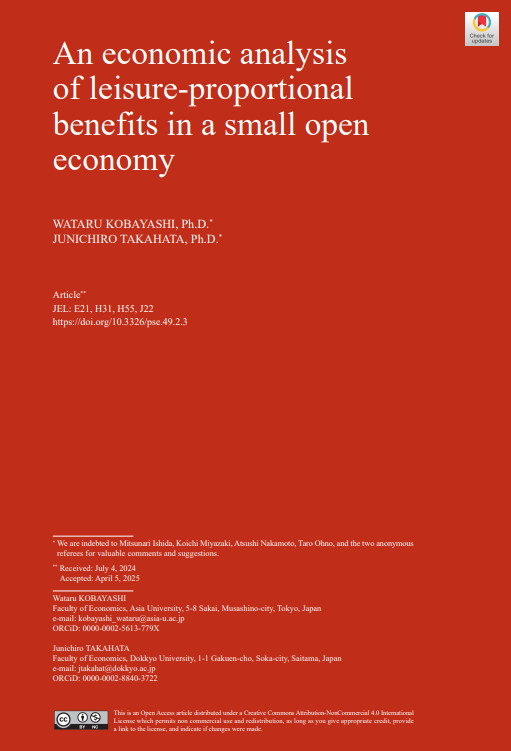An economic analysis of leisure-proportional benefits in a small open economy
DOI:
https://doi.org/10.3326/pse.49.2.3Keywords:
ocial security, endogenous retirement, labour supply, savings, social welfareAbstract
This paper analyses the impact of public pensions on resource allocation in a small open economy. In particular, we focus on the economic implications of leisure-proportional benefits. It is well known that a pay-as-you-go scheme can improve social welfare when the population growth rate exceeds the interest rate, which we call the “Aaron effect”. We analyse the changes in labour supply, savings, and social welfare from an increase in the public pension taking into account the Aaron effect. We obtain the following results. First, we show that the effect of public pensions on labour supply includes the Aaron effect, but regardless of its sign, labour supply decreases as public pensions increase. Second, the effect of public pensions on savings does not include the Aaron effect, and savings decrease as public pensions increase. Third, the effect of the introduction of public pensions on social welfare consists only of the Aaron effect.

Downloads
Published
Issue
Section
License
Copyright (c) 2025 Wataru Kobayashi, Junichiro Takahata

This work is licensed under a Creative Commons Attribution-NonCommercial 4.0 International License.








